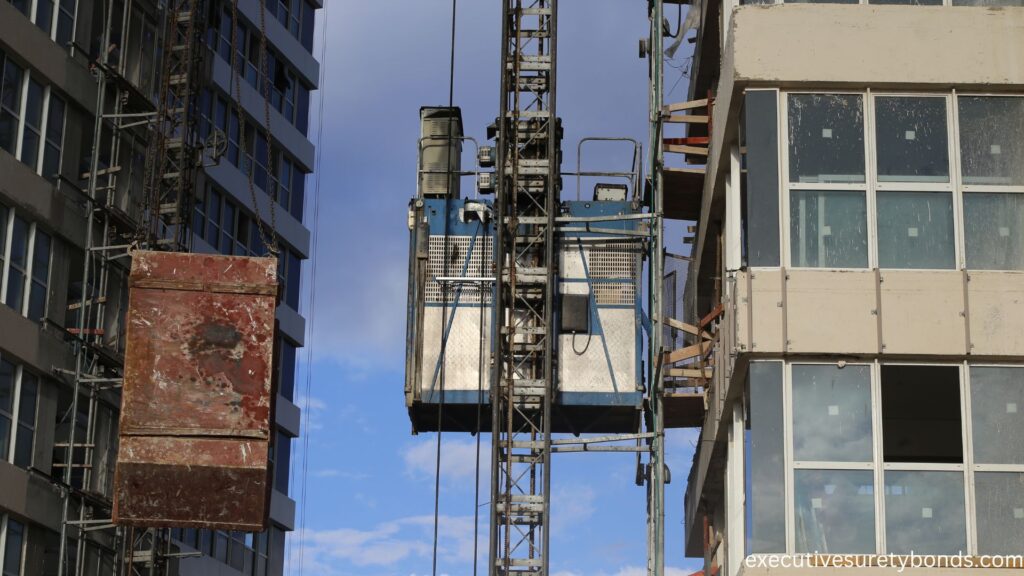Introduction: Constructing a Foundation of Assurance
Picture a majestic skyscraper, towering with elegance, embodying both strength and aesthetic grace. Much like this marvel of architecture, the Arkansas Commercial Contractor’s License Bond of $10,000 stands as a pillar, fostering integrity and reliability in the construction arena. This bond is not merely a financial instrument but a building block that supports a stable and trustworthy commercial contracting business. Let’s traverse the structured pathways of this bond and explore how it lays down a foundation of trust and quality in the construction industry of Arkansas.
The Blueprint: Defining the Bond
More Than Money: A Pledge of Commitment
The $10,000 bond doesn’t function as a payment or fee, but rather as a financial guarantee. It ensures that the commercial contractor will adhere to laws, regulations, and ethical standards, safeguarding client interests and investment.
Cementing Customer Confidence
With the bond in place, customers are assured that they have a form of financial redress should the contractor fail to fulfill contractual obligations or breach legal frameworks.
Laying the Bricks: How the Bond Works
A Safety Net for Clients:
If a contractor engages in unethical or illegal practices, clients can file a claim against the bond, potentially receiving compensation up to the bond’s value, thereby ensuring they aren’t left in a financial void due to a contractor’s missteps.
Erecting Ethical Walls:
The bond encourages contractors to operate within legal and ethical boundaries, as failure to do so can result in financial claims against them, safeguarding the industry from malpractice.
Navigating the Regulatory Framework: Getting Bonded
Assessing Structural Integrity:
Contractors undergo a thorough review where their financial stability, ethical track record, and compliance with regulations are scrutinized before the bond is issued, ensuring only qualified entities enter the commercial contracting space.
Premium Calculation – The Financial Blueprint:
The actual cost to the contractor (the premium) is a fraction of the $10,000 and is determined based on various factors like credit score, financial history, and sometimes, industry experience.
The Bond as a Scaffolding in the Economic Landscape
Elevating Industry Standards:
By mandating ethical and legal operation, the bond uplifts industry standards, ensuring that commercial construction in Arkansas mirrors reliability and quality.
Engineering Economic Stability:
By safeguarding consumer interests and investments, the bond fosters a stable and thriving economic environment within the commercial construction sector.
The Impact Beyond State Borders
Local Foundations, Global Echoes:
While tailored to Arkansas’s regulatory climate, the bond might also absorb and reflect practices and learnings from global trends and international regulatory frameworks.
Weathering Global Economic Storms:
In scenarios where global economic tremors are felt locally, the bond stands as a steadfast pillar, ensuring that the commercial contracting space remains secure and does not crumble under international pressures.
Conclusion: Constructing a Future of Reliability and Trust
As we step back and admire the structural integrity, trust, and reliability facilitated by the Arkansas Commercial Contractor’s License Bond ($10,000), it’s evident that its impact is multifaceted. Not merely a financial safeguard, this bond shapes the commercial construction industry, ensuring it stands tall, reflecting ethicality, quality, and consumer protection in its every brick and mortar.
Frequently Asked Questions
1. How is the $10,000 Amount for the Arkansas Commercial Contractor’s License Bond Determined and Does it Ever Change?
The $10,000 value for the Arkansas Commercial Contractor’s License Bond is not a random figure but is determined by state legislatures and regulatory bodies. This amount is often established considering several factors like average project costs, historical data on claims, and the potential financial risk to consumers. The aim is to strike a balance, ensuring the bond is substantial enough to cover potential claims while also not being prohibitively expensive for contractors. It’s worth noting that bond amounts can be subject to change. Legislative adjustments, economic fluctuations, or shifts in the construction industry might prompt regulators to reassess and potentially modify bond amounts to ensure continued relevance and adequacy in protecting consumer interests.
2. Can a Commercial Contractor Work in Multiple States with the Arkansas Commercial Contractor’s License Bond?
While the Arkansas Commercial Contractor’s License Bond is crucial for operations within Arkansas, its validity doesn’t extend beyond state borders. Each state in the U.S. typically has its own bonding requirements for contractors, reflecting their unique regulatory landscapes and industry dynamics. If a commercial contractor from Arkansas wishes to undertake projects in another state, they would generally need to secure a separate contractor’s license bond compliant with the requirements of that particular state. Multistate operations can thus involve navigating through varied bonding processes and adhering to diverse regulatory stipulations across different states.
3. In What Scenarios Could a Claim Against the Arkansas Commercial Contractor’s License Bond Be Denied?
While the bond is designed to provide financial redress to consumers in the event of contractor malpractice, not all claims against it are automatically validated. There are circumstances where a claim might be denied. For instance, if a claim is found to be fraudulent or if the contractor’s actions in question are determined to be in compliance with legal and contractual obligations, a claim might be invalidated. Moreover, if a claim is filed after the bond has expired, or if the claim amount exceeds the bond value ($10,000), there may be limitations on claim validation and payout. Understanding the specific parameters and limitations of the bond is crucial both for contractors and consumers to navigate potential claims effectively and accurately.

